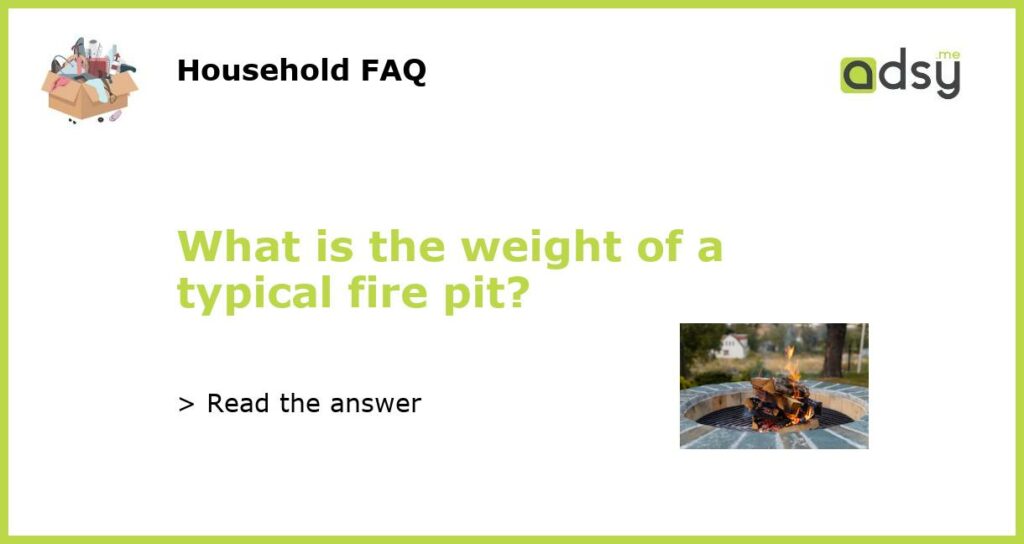Understanding the Weight of a Typical Fire Pit
Fire pits are heating units that are commonly used outdoors during the colder months. They come in different shapes and sizes, which often affects their weight. The weight of a fire pit is an important factor to consider, as it influences its portability, durability, and ease of use. Some fire pits are designed to be moved easily, while others are fixed and require installation. Therefore, it is important to know the weight of a typical fire pit before purchasing one, particularly if you plan to move it around frequently.
The Factors that Affect the Weight of a Fire Pit
The weight of a fire pit depends on several factors, including its materials, size, and shape. The materials used in making a fire pit can greatly affect its weight. For instance, fire pits made of cast iron are generally heavier than those made of stainless steel. Similarly, larger fire pits tend to be heavier than smaller ones, while round pits are lighter than square or rectangular ones. Additionally, some fire pits come with extras like grills, lids, and screens, which can add to their weight.
What is the Weight of a Typical Fire Pit?
The weight of a typical fire pit varies greatly depending on its materials, size, and shape. On average, a small fire pit weighs around 15 to 20 pounds, while a large fire pit can weigh up to 100 pounds or more. For example, a common round fire pit made of stainless steel with a diameter of 30 inches can weigh around 25 pounds, while a square fire pit made of cast iron with sides of 36 inches can weigh up to 200 pounds.
Why is Knowing the Weight of a Fire Pit Important?
Knowing the weight of a fire pit is important for several reasons. Firstly, it helps determine the unit’s portability. If you plan to move your fire pit frequently, you would need a lightweight and easily carried unit. Secondly, it affects the installation requirements. Some fire pits need to be installed professionally due to their weight, while others can be easily installed by the owner. Finally, the weight determines the unit’s durability. A heavier fire pit is often more stable and can withstand extreme weather conditions compared to its lighter counterparts.
When choosing a fire pit, it is important to know the weight of a typical fire pit, as it influences its portability, durability, and installation requirements. The weight of a fire pit depends on several factors, including the materials used, size, and shape. A heavy fire pit is often more durable but may also be harder to move around, while a lightweight fire pit may be more portable but less durable. Therefore, weighing your options is important to ensure you get the best possible fire pit for your needs.






